Empowering with Digital Intelligence, TTX and Enterprises Explore Development Opportunities in the Petrochemical Industry Supply Chain
-
2024-07-02
-
TTX Updates
The 'China Petrochemical Smart Supply Chain Technology Exchange Conference and Petrochemical Enterprise Supply Chain Management Seminar' successfully concluded in Xi'an from June 26-28, 2024.
The aim of this seminar was to accelerate the development of new productive forces, significantly enhance the resilience and competitiveness of the industrial and supply chains, and comprehensively promote the transformation and upgrade of procurement management to supply chain management in petrochemical enterprises.
Mr. Yu Wu, CEO of TTX, was invited to attend this seminar and delivered a keynote speech titled 'The Road to Supply Chain Digitization Based on Control Towers - Development Opportunities in the Petrochemical Industry Supply Chain'.
#01
About the China Petrochemical Smart Supply Chain Technology Exchange Conference
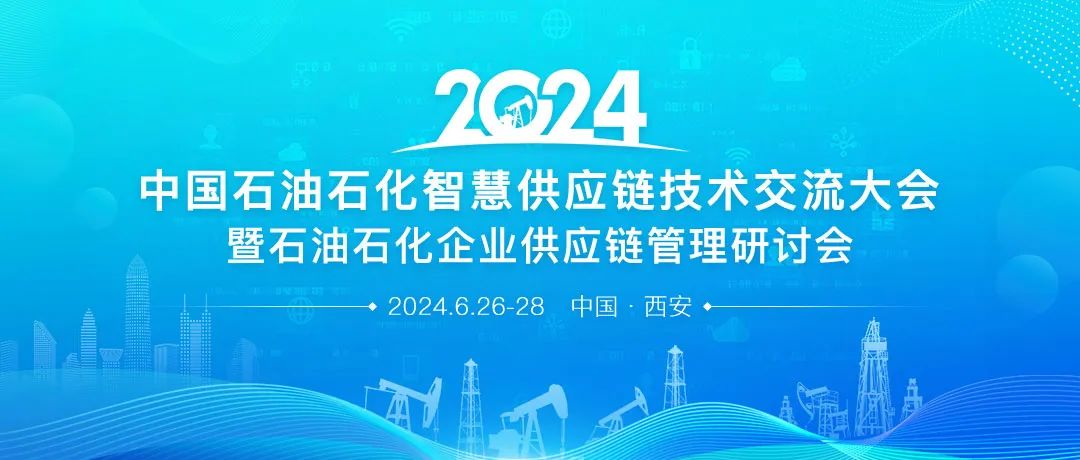
The theme of this conference is "Developing New Productive Forces to Promote the Greening of the Petrochemical Industry Chain and the Digital Intelligence Upgrade of the Supply Chain." Leaders and experts from relevant national ministries and commissions, academicians from the Chinese Academy of Sciences and the Chinese Academy of Engineering, and senior management and industry experts from leading groups such as China National Petroleum Corporation, China Petrochemical Corporation, China National Offshore Oil Corporation, PipeChina, China Energy, Sinochem Group, and Shaanxi Yanchang Petroleum attended the event. They shared in-depth successful experiences in procurement management and supply chain management of petrochemical enterprises.
Participants unanimously agreed that it is essential to actively cultivate new digital development momentum and focus on creating lean, collaborative, international, intelligent, and green development in the petrochemical industry's supply chain. This will inject new momentum into the industry's sustained prosperity.
#02
The Petrochemical Industry Supply Chain's New Development Opportunities
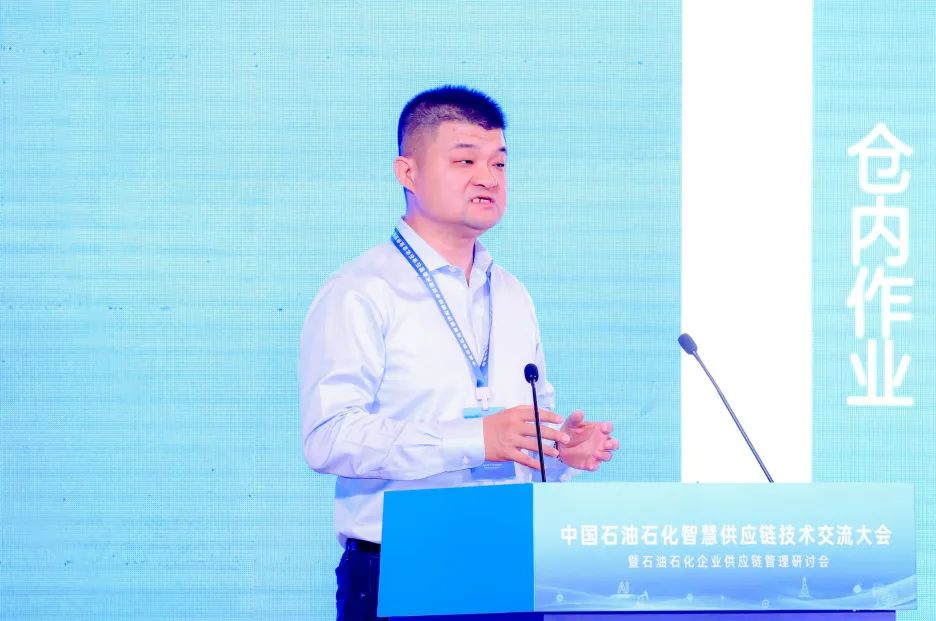
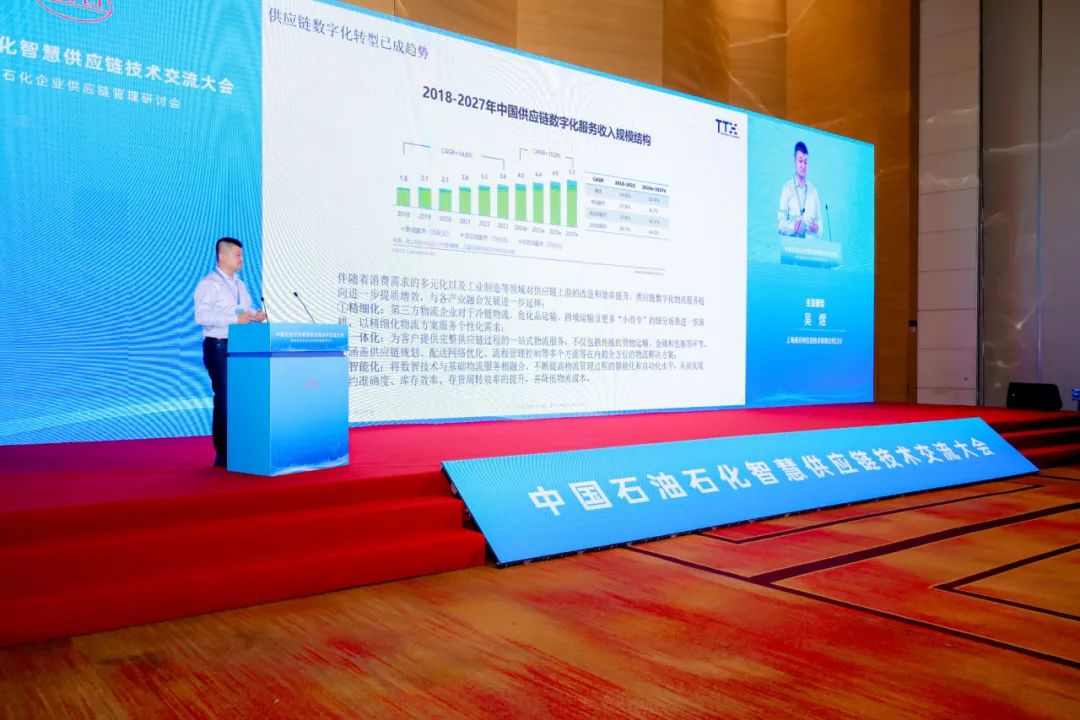
Mr. Yu Wu, the CEO of TTX, discussed the current state and future direction of the petrochemical industry. He stated that in today's digital wave, the petrochemical industry is facing unprecedented opportunities and challenges.
First, from a policy perspective, the requirements for environmental protection, compliance, and energy consumption limits have increased management difficulty for enterprises, raising operational costs and technical investments.
Second, the petrochemical industry involves multi-tier suppliers and a lengthy chain from procurement to production. The complexity of coordination across multiple stages is high, and issues like data silos and complicated logistics management are becoming increasingly apparent.
Additionally, there is a strong reliance on upstream resources and bulk logistics, involving various forms such as pipeline transportation, conventional logistics, and hazardous chemicals logistics. This makes it difficult to predict and mitigate supply chain risks in advance.
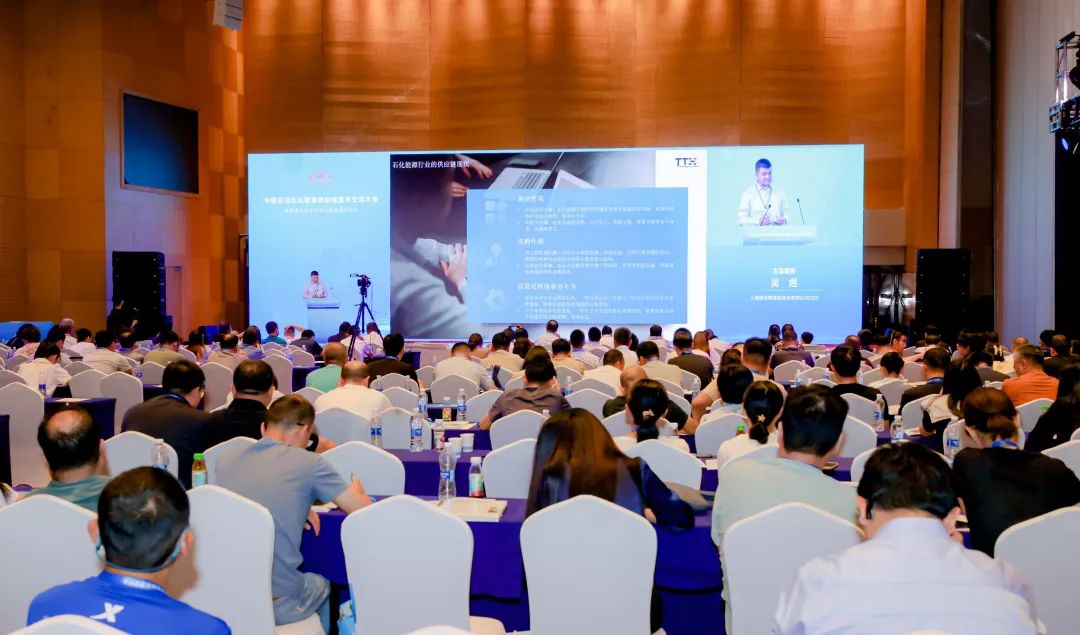
At the same time, with the diversification of consumer demand and the transformation and efficiency improvement of the upstream supply chain in fields such as industrial manufacturing, developing new quality productivity has become an important trend. In this process, the digitalization of supply chain construction is a key area. How to optimize supply chain management and improve operational efficiency through digital means has become an important topic for industry enterprises.
Data Collection and Analysis: By leveraging Internet of Things (IoT) technology, real-time data collection from production equipment, transportation vehicles, and warehousing facilities can be achieved. Utilizing big data technology, in-depth analysis of data from various stages of the supply chain can identify potential issues and optimize decision-making.
Supply Chain Visualization: Developing and applying supply chain visualization tools to monitor the status of the supply chain in real time, including inventory levels, transportation routes, and production progress. Using data dashboards and reporting tools to visually display key performance indicators (KPIs) for each stage of the supply chain.
Intelligent Logistics: Through technologies like GPS and RFID, real-time tracking and management of transportation vehicles can be achieved, optimizing transportation routes and reducing costs. Adopting automated warehousing systems can improve warehousing efficiency, reduce labor costs, and increase accuracy.
Supply Chain Collaboration: Digital development extends to both ends of the supply chain. On one hand, establishing a collaborative platform (SRM) with suppliers to achieve information sharing and cooperation, improving supply chain response speed. On the other hand, strengthening interaction with customers through a digital platform (CRM) to understand customer needs and enhance customer satisfaction.
Prediction and Optimization: Using machine learning and artificial intelligence technologies to predict market demand changes, adjusting production and inventory strategies to reduce the risk of excess and shortages. Through simulation and optimization technologies, analyzing the performance of each stage of the supply chain to find optimization solutions and improve overall efficiency.
Security and Compliance: Strengthening cybersecurity measures at all stages of the supply chain to prevent data breaches and cyber-attacks. Ensuring supply chain operations comply with relevant laws and regulations through digital platforms for compliance monitoring and management.
Environmental and Sustainable Development: Using digital technologies to monitor the carbon emissions of the supply chain, optimizing production and transportation processes to reduce carbon footprints. Promoting the construction of a green supply chain by adopting environmentally friendly materials and energy-saving technologies to enhance the sustainability of the supply chain.
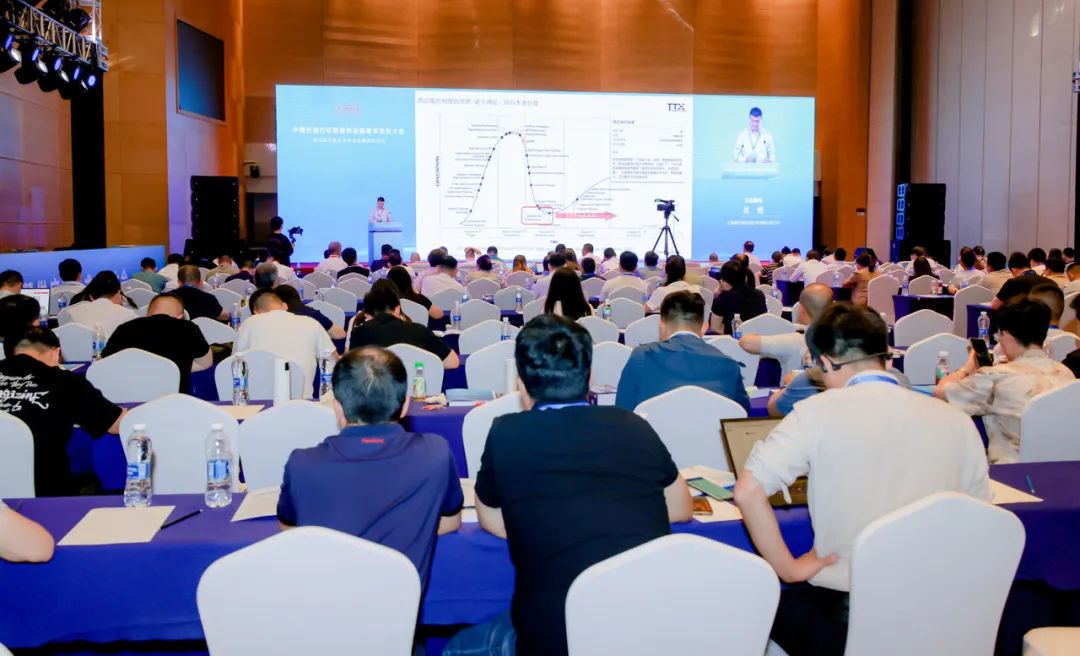
Through the digital construction of the aforementioned key areas, petrochemical enterprises can achieve transparency, intelligence, and efficiency in their supply chains, thereby enhancing their competitiveness and driving the development of new quality productivity.
#03
Supply Chain Control Tower: The Core Engine of Digital Transformation
Mr. Wu stated that the supply chain control tower is a key tool for achieving digital transformation. It is not just a data dashboard but a management tool that spans the entire enterprise. The primary functions of the control tower include resource and asset management, operational metrics monitoring, cost allocation and revenue control, and alerts for safety, weather, and industry events.
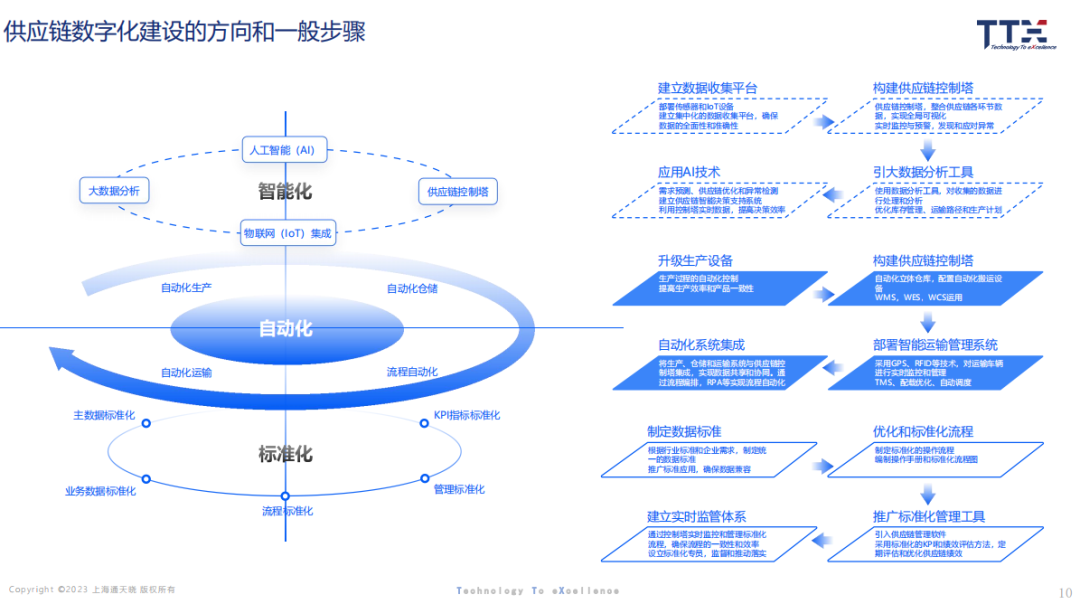
Although the direction of supply chain digitalization ultimately leads to intelligent development, it is not achieved overnight. Its development stages can progress from standardization to automation and finally to intelligence. The complete construction steps are as follows:
Building Technical Infrastructure: Establish a unified data collection platform to gather real-time data from production, transportation, and inventory stages, ensuring the accuracy and comprehensiveness of the data.
Unifying Data Standards: Introduce data analysis tools and standardize data management to process and analyze collected data, optimizing inventory management, transportation routes, production planning, and more.
Achieving Data Visualization: Build a supply chain control tower to integrate data from all stages of the supply chain, enabling global visualization.
Real-Time Monitoring and Alerts: Use the control tower to monitor the supply chain's operational status in real-time and set up alert mechanisms to promptly detect and respond to anomalies.
Intelligent Decision Support: Leverage real-time data and analysis results provided by the control tower to improve decision-making efficiency and accuracy.
Applying AI Technology: Develop or introduce AI algorithms for demand forecasting, supply chain optimization, and anomaly detection. Establish an intelligent decision support system to assist managers in making supply chain decisions.
Mr. Wu added that digital transformation is not just a technological upgrade but a process of reshaping organizational capabilities. Enterprises need to build a unified business capability platform to avoid fragmented and individualized management approaches. Through the integration of business and finance, more refined management can be achieved.
#04
TTX: End-to-End Digital Supply Chain Solutions
TTX is continuously driving product innovation and iterating towards platform-based solutions in response to industry changes and demands. We are integrating Order Management Systems (OMS), Transportation Management Systems (TMS), Warehouse Management Systems (WMS), and Billing Management Systems (BMS) into robust, data-supported, and standardized digital logistics supply chain solutions. This direction helps businesses transform from supply chain informatization to digitalization, meeting new demands brought by rapid enterprise growth and adapting to future business changes.
In addition to supply chain platform solutions, we are assisting many enterprises in establishing supply chain control towers. Our goal is to help unify and monitor business operations at an enterprise level, enabling agile transformation of supply chains. However, the control tower cannot be established in isolation—it requires real-time data support. TTX leverages internal or integrated external systems like OMS, WMS, TMS, IoT, synchronizing business node data to collect, transform, model, and analyze data. Combined with TTX's digital supply chain platform, we assist enterprises in connecting with intelligent and automated equipment, addressing issues in order and inventory management, and achieving integrated business and financial management. Simultaneously, we provide the basis and support for analytical decision-making for businesses.
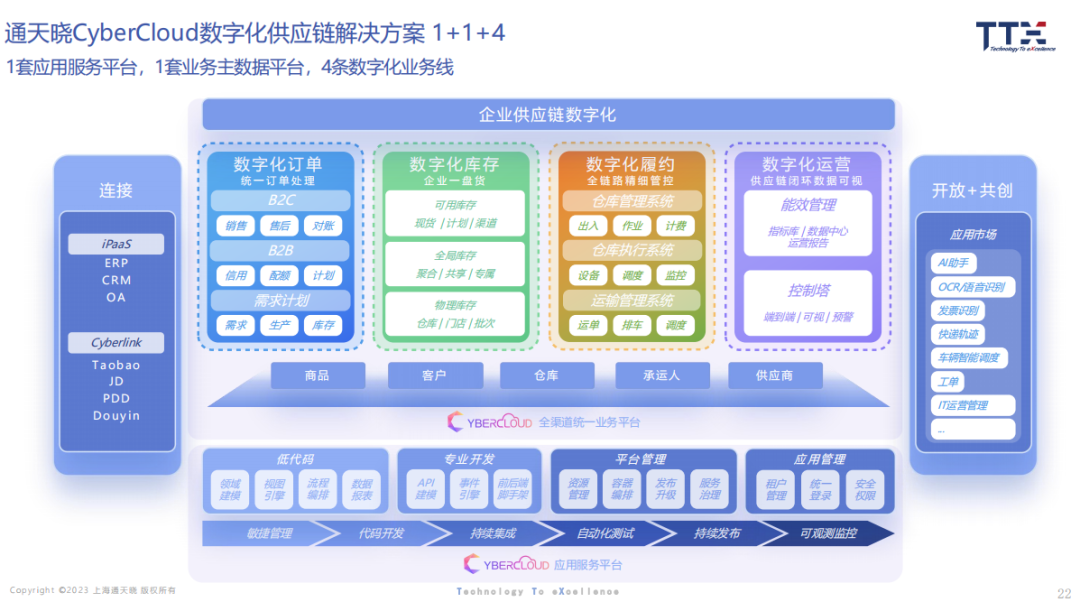
Currently, TTX's solutions have been successfully implemented across over 14 industries and hundreds of leading enterprises. There are numerous successful and exemplary cases in industries such as smart manufacturing, spare parts management, consumer goods, healthcare, and third-party logistics. Additionally, these solutions have been successfully deployed and launched in various countries and regions including Southeast Asia, Japan, South Korea, Thailand, demonstrating our capability for international delivery.

TTX, as a leading provider of logistics systems and solutions, showcased its OMS, WMS, TMS, BMS, and logistics control tower products at this seminar. Their outstanding products attracted the attention of association leaders and visiting enterprises, fostering valuable exchanges.
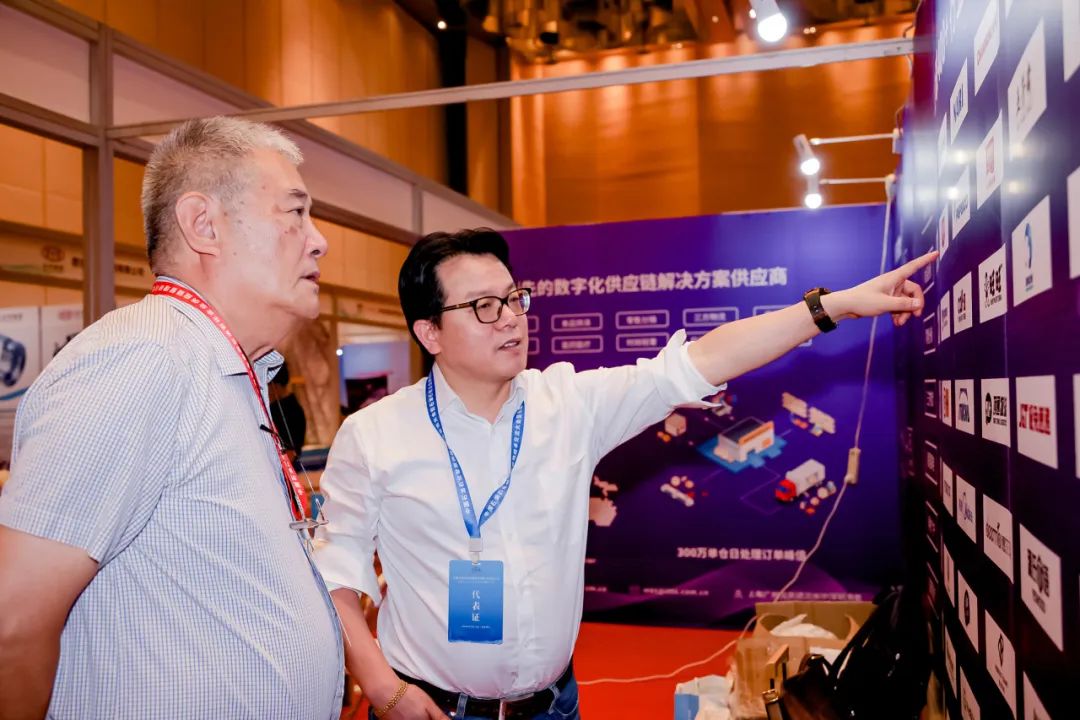
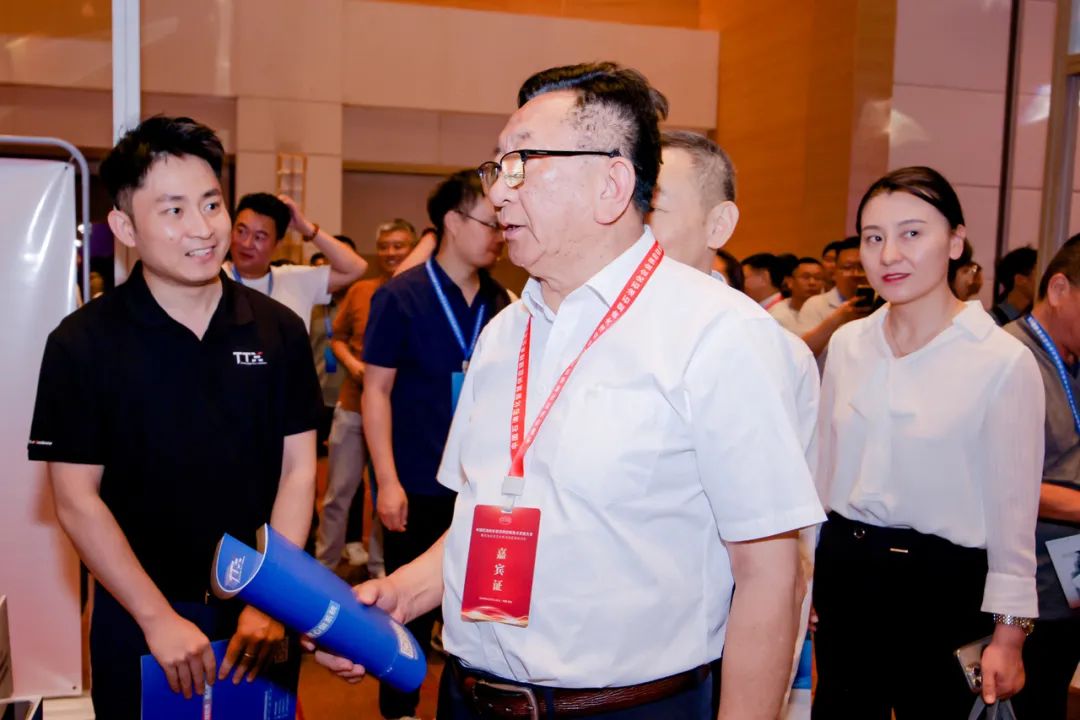
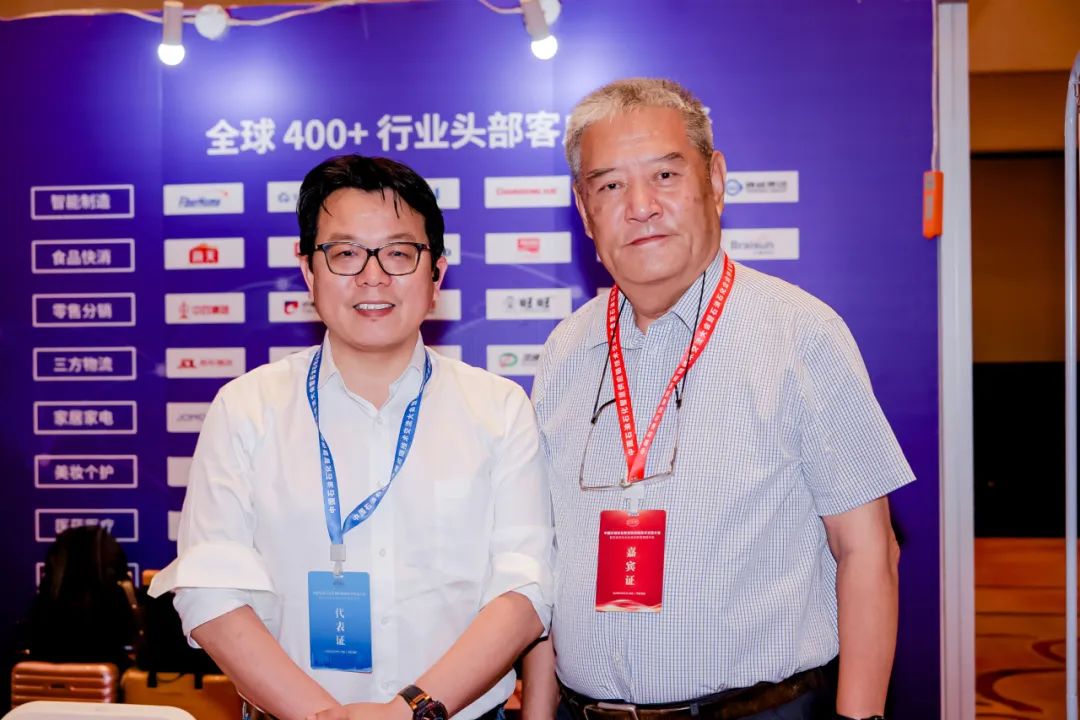
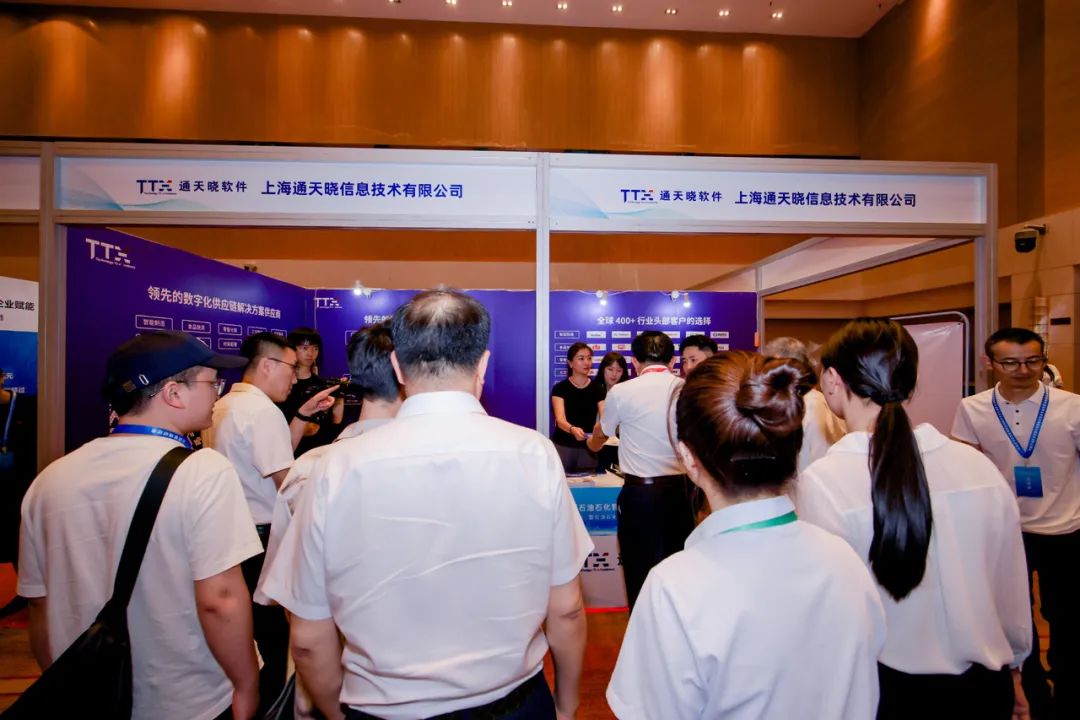
Conclusion
END

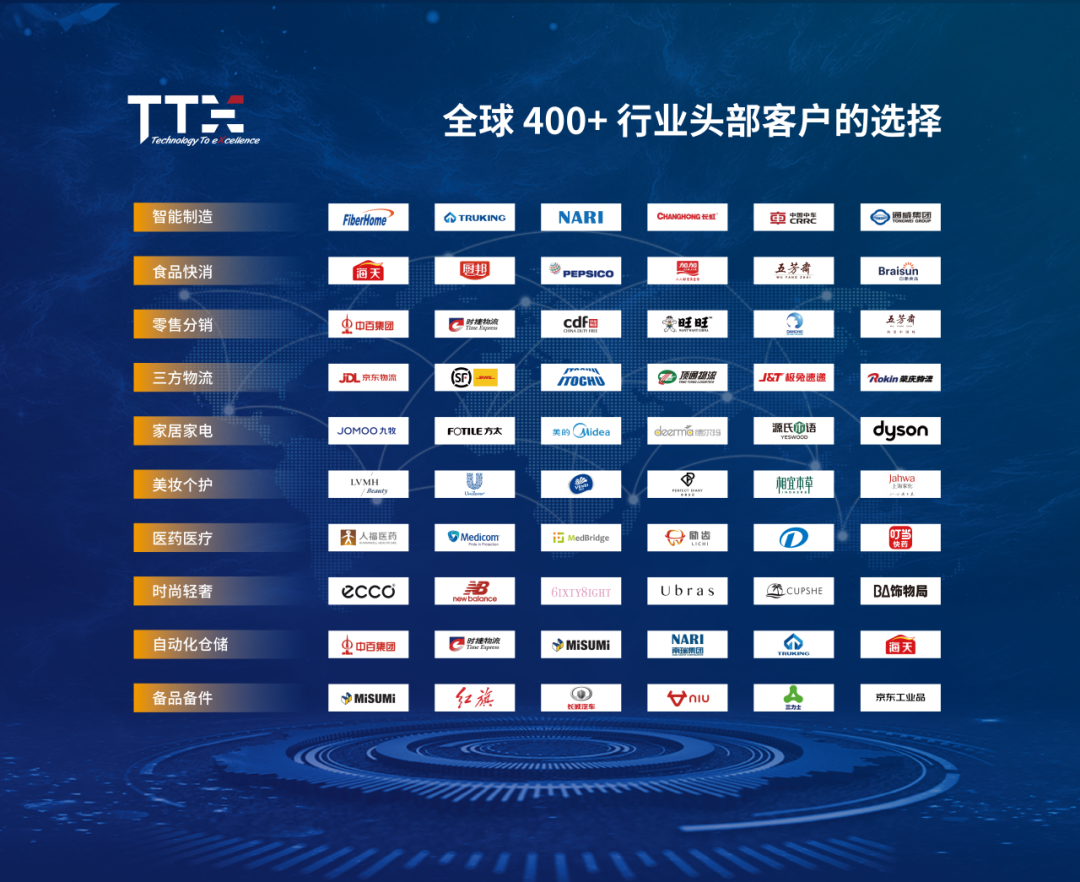
Share
Hot News
-


Empowering with Digital Intelligence, TTX and Enterprises Explore Development Opportunities in the Petrochemical Industry Supply Chain
-

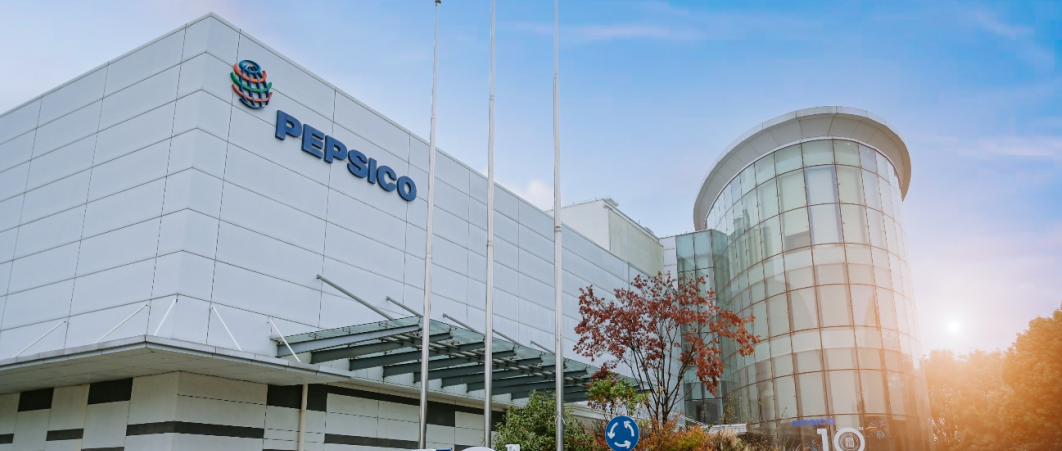
【A Letter of Recognition from PepsiCo】
-


TTX Debuts at AIM UAE International Investment Meeting, Promoting Digital Supply Chain Progress for Enterprises
-

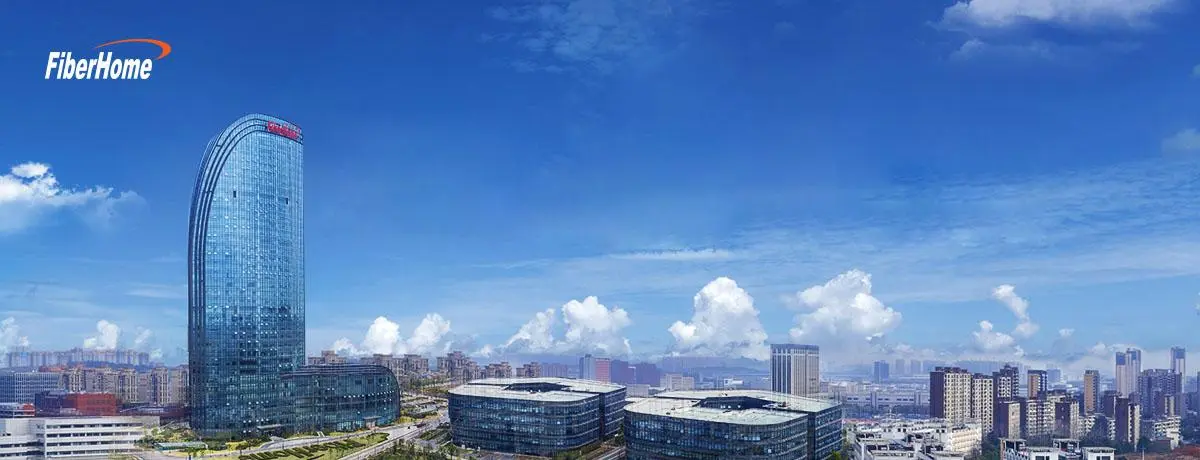
烽火通讯
-

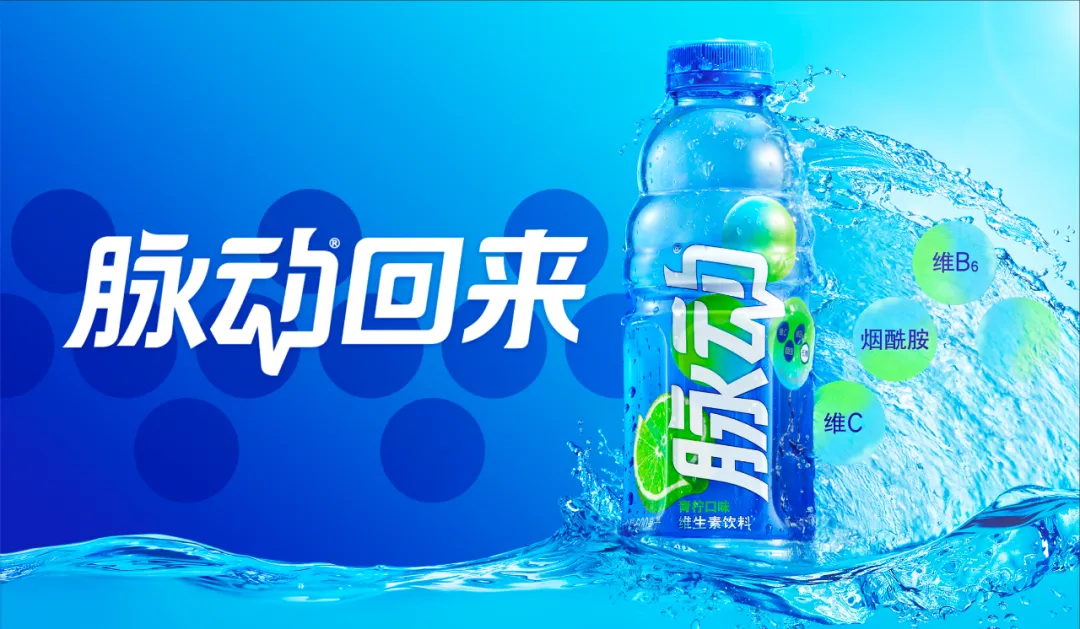
达能
-

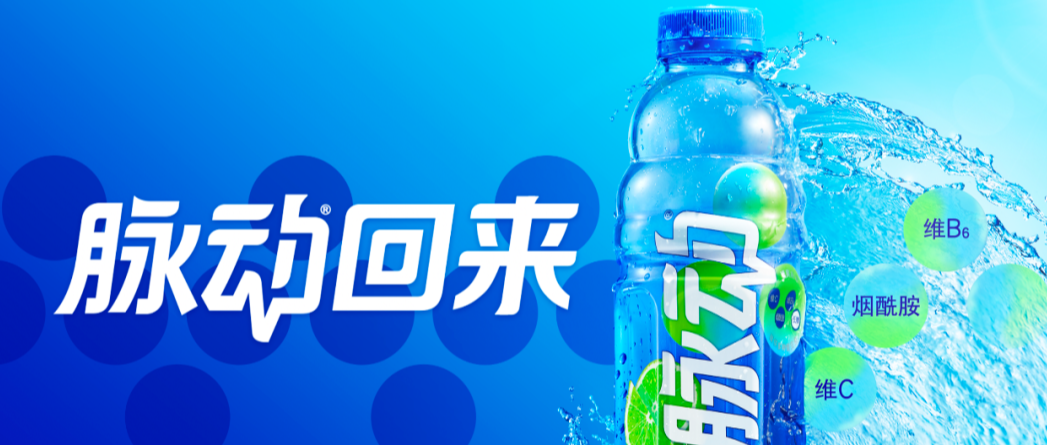
Food & Beverage | The Digital Supply Chain Rules Behind Mizone
-


悠可化妆品
-


衣品天成——电商领域最具影响力的服饰品牌之一







